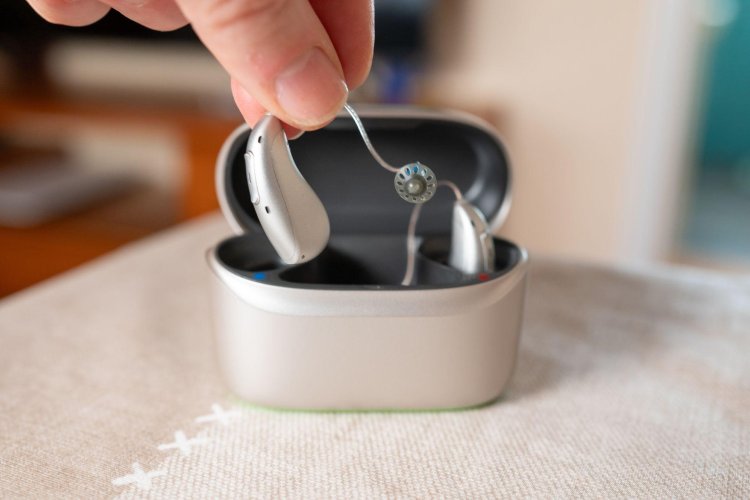Why Listening Can Feel Exhausting: Understanding Auditory Fatigue
If you’ve ever had a day full of meetings or lengthy conversations and felt drained at the end of it, it might not just be regular fatigue. When your brain has to work overtime to process sound, it can lead to a condition known as auditory fatigue.
While anyone can experience auditory fatigue, it is especially overwhelming for people dealing with hearing issues. Even on days you didn’t do much physically, your brain and ears have been working hard and need time to recuperate.
What Is Auditory Fatigue?
Prolonged listening can be exhausting. When your brain has to work harder to decipher the different sounds you’re hearing, it causes mental strain that manifests itself as auditory fatigue.
This condition differs from the muffled feeling caused by temporary threshold shift because it doesn’t have physical symptoms. It is a mental exhaustion caused by your ears and brain working to fill in gaps or filter out things like background noise.
Signs and Symptoms to Pay Attention To
How can you tell if you’re dealing with listening fatigue? While it might look different person to person, some common auditory fatigue symptoms are:
- Difficulty focusing during conversations.
- Feeling mentally wiped out after socializing, working, or attending events.
- Headaches, tension, or irritability linked to extended listening.
- A desire to withdraw from noisy or demanding listening situations.
It’s important to note that hearing loss has a lot of the same symptoms, so if you find yourself dealing with some of these on quieter, less stimulating days, it might be time to schedule a hearing test.
Processing Sounds Can Be Hard on Your Brain
Certain factors might make you more prone to experiencing listening fatigue. The constant background noise in places like offices or restaurants makes it difficult to focus on the conversation you’re having.
If you’re speaking to people who mumble or whisper, this increases the mental load on your brain and makes listening harder than it needs to be. Being in loud environments can also overwhelm your ears with too much sensory input.
All of these situations can leave you feeling inexplicably drained at the end of the day because it takes a lot of energy and effort for your brain to constantly process different sounds. This is only made harder if you are already struggling with untreated hearing loss.
Health and Lifestyle Impacts
Being mentally exhausted after being in any of those scenarios might lead you to pull back from attending activities or going places where you anticipate feeling this way afterward.
You may find yourself reducing the number of social activities you attend or being less productive at school or work.
Coping Strategies and Prevention
The right strategies can help minimize listening fatigue:
- Wear well-fitted hearing aids that are programmed to your needs.
- Take listening breaks throughout the day to give your brain a rest.
- Seek quieter environments to reduce background noise.
- Practice relaxation techniques to decrease stress levels.
- Stay connected with a hearing care professional.
The Connection Between Hearing Loss and Auditory Fatigue
If you have hearing issues or undiagnosed hearing loss, your brain already has to work harder to fill in the gaps during conversations. Instead of simply listening, you’re also guessing, interpreting, and piecing together what you missed. This constant effort increases the risk of auditory fatigue.
Hearing aids can help reduce the burden on your brain. Getting properly fitted for the right hearing aid enables you to engage with the world around you without the added mental strain.
When to Seek Professional Help
Determining whether your auditory fatigue is a symptom of untreated hearing loss or the result of prolonged listening strain can be confusing. A hearing evaluation can get to the root of the problem and help you find the right solution, whether that’s scheduling a hearing aid demo or adjusting your current devices.
Schedule your hearing evaluation today at our Tennessee hearing aid centers and let us help ease the load on your brain.






